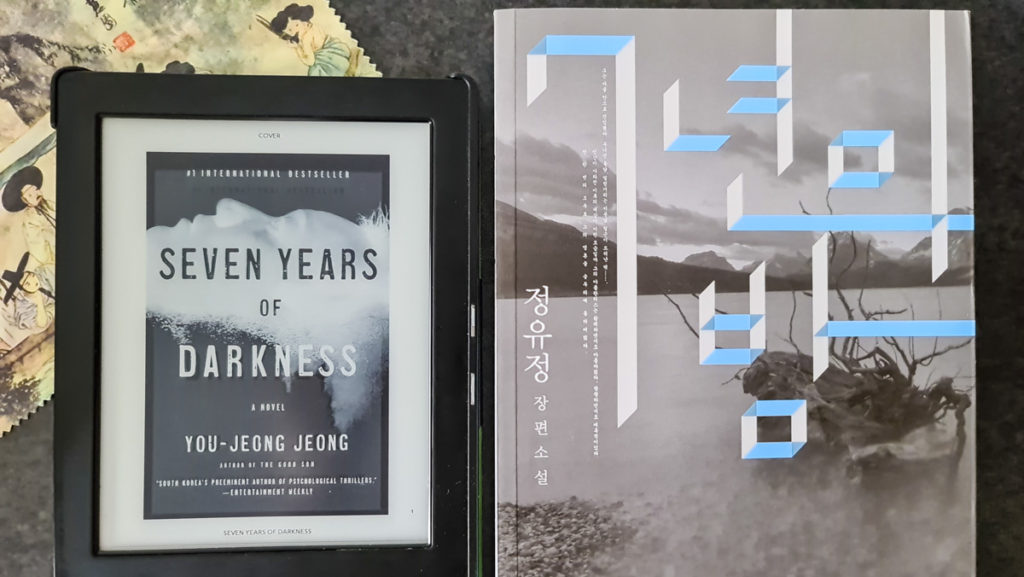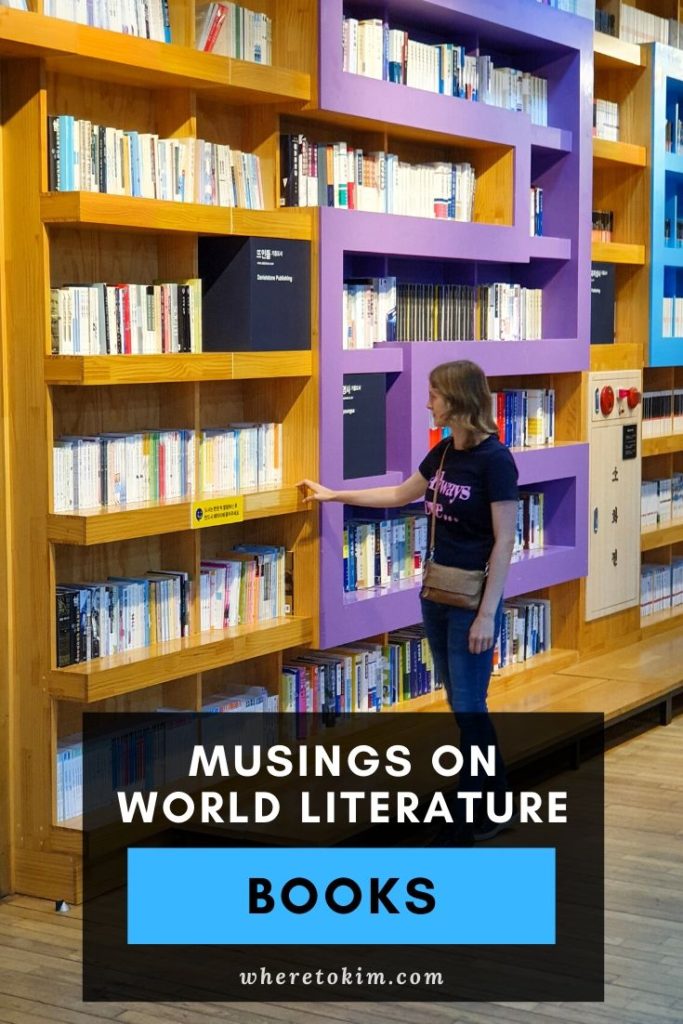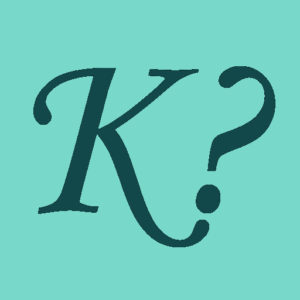Do you read world literature and if yes from which countries? Do you feel limited by the availability of translated works like I do? And manipulated?
When I’m traveling I tend to read a lot about the country I’m visiting. So when I’m not traveling as much (let’s call this the corona year) I have no focus. Still, I have a tendency towards books set in Asia and Northern Europe: countries I visit a lot.
Preference or coincidence?
The consequence of this is that I have huge blind spots. This especially goes for world literature from countries I haven’t visited. For these countries, I don’t feel the anticipatory excitement that makes me read as much as possible to learn about the culture so I can recognize habits or places while traveling. It could also be that a preference for certain places shows both in the travels I make and the books I read. Should I be okay with the fact that I like to read about certain countries and cultures more than others?
In the past year I did read books from most continents/areas:
- Africa: The Alchemist by Paulo Coelho and the non-fiction books ‘Chief Ouwe Dibbes’ (Dutch book) and the story of Elon Musk by Ashlee Vance are partly set in Africa. If I can list all the books I read about a certain continent, then there can’t be many.
- Asia: many, check out my Korean, Japanese, Hong Kong, and Malaysian book lists.
- Central America: none.
- Europe: many, I also created a Finnish book list.
- Middle East: a Dutch book set in Iran by Kader Abdolah and several books by Kahlil Gibran
- North America: A Witchly Influence by Stephanie Grey and many others that I didn’t review.
- Oceania: Boy Swallows Universe by Trent Dalton. But let’s not celebrate too soon, this is the only one.
- South America: none
- Space: The Naked Sun by Isaac Asimov aka “corona-like isolation in space”, and I even created a Space book list.
Any books you can recommend for my biggest blind spots Central and South America?
Availability of translations
I sometimes feel limited by the availability of translations. There is so much to choose from, and yet some great books are left out. Someone else makes the selection for me, decides what to translate, and hence what I can read. I feel like I’m missing the pearls that don’t get chosen. I felt this very strongly when reading about the library of rejected books in The Mystery of Henri Pick.
However, books of Dutch, English, or German origin are completely within my reach and the same goes to a lesser extent for French and Spanish. These are the languages I can read, some more comfortably than others. I’m not counting the languages I can make sense of by looking up most of the words in a sentence in a dictionary; that’s more translating than reading. If such books ever get translated, the translated work is bound to be published sooner than I find time to translate-read the whole book (this happened with Seven Years of Darkness!). I can learn to read new languages over the course of my life, but I won’t be able to learn all of them.

Finding the right book
How do you find the book that’s right for you among all available books? Do you look at bestseller lists, recommendations from others, or books that are literally in your face because they have great marketing teams representing them? I hope I’m not the only one that methodically ignores the five-star ratings with pictures in the Goodreads reviews for YA books. Some genres just don’t get useful ratings. It is a bit better for world literature; at least there you can often look at the arguments to balance the negative and positive reviews.
When it comes to availability, the same happens here as with the selection of books for translation: someone else chooses what to promote and the best marketer wins. After reading more books from one author you can make a more balanced choice without relying on other people’s opinions. But how and why did you find out about that author?
Does the author have an interesting personality and an active social media account? Does that person often use the attention he or she gets to broadcast their vision on politics or societal discussions? More than he or she talks about books? Something like that can really annoy me especially if I don’t 100% agree with their opinions. I don’t really hold it against them though: I’ll still read their books but probably unfollow on social media.
A less biased way to find authors would be to read all the press releases from all the publishers: the best cover text and cover design will guide your opinion. Then you would only miss the rejects. And how will you hear about the many indie books that are published each year?
Where does your personal interest come in? If everything else would be equal, then that would be decisive. Unless you want to read outside of your comfort zone. How many books will you consider because every living person is supposed to have read them? I’m guilty of reading books that are popular because I want to know why everyone’s talking about them. Only a very small percentage of those invoke this special ‘wow’ feeling in me. It’s often the books you consider reading for less than a second that end up engraving themselves in your memory. These are the five star (and on occasion four star) books that I want to share with you on my blog: the books that inspire me.
The book that inspired (and mesmerized) me the most in 2020? Winter in Sokcho by Elisa Shua Dusapin. Eternity versus temporality.
But the year isn’t over yet. I can select more books to read from the pre-selection others kindly made for me.
Free will or manipulation
The question that I’m left with is the following:
Of all the books I read, how many did I read as a result of my free will?
What about you?







